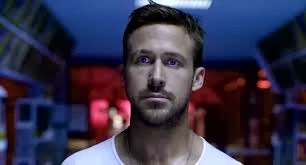Directed by Jean-Marc Vallee
Written by Craig Borden and Melisa Wallack
Written by Craig Borden and Melisa Wallack
The past few years have been very interesting for Matthew McConaughey. Known mostly in the past for romantic comedies and other "sell-out" films, McConaughey has had something of a career renaissance in recent years, taking on gutsier roles in the hopes of showing that he has some actual talent somewhere inside him. With his performance in Dallas Buyers Club, his talent is finally undeniable, as he gives a layered, powerful and emotional performance, and makes it fun, to boot.
McConaughey plays Ron Woodroof, a Texas redneck who is diagnosed with HIV. Quickly fed up with the American medical system. Woodroof starts going around the law and the FDA to bring medication into the US, for himself and others to treat their illness on their own terms.
What helps make the film work are the performances. Jennifer Garner is effective as a sympathetic doctor, and helps make a rather standard role somewhat more interesting. Jared Leto truly impresses as Rayon, a transvestite HIV patient who partners up with Woodroof and attempts to steal every scene he's in. He is nearly unrecognizable in most of his scenes, and plays nicely off of McConaughey's bigoted character. Ultimately, though, this is McConaughey's showcase, and he makes the most of every scene he is in. His success here is incredibly shocking, and reveals a brand new depth of talent that would not be expected from the man who five years ago starred in the failure Fool's Gold. He takes the character through a fascinating arc, and allows him to grow gradually, never stretching the realm of believability even a bit.
This film is important, but it is also emotional and quite a lot of fun. There are many humorous moments, and Woodroof's reactions to people are quite entertaining to watch, as is almost every scene Leto is in. The audience really does start to feel for these characters as the film goes on, though, to the point where watching them deal with their disease becomes quite difficult. Dallas Buyers Club is a story that backs its lead characters into a corner, and watches as they try their hardest to break out of the corner. Most importantly, it is a lot of fun watching them do it. A-



